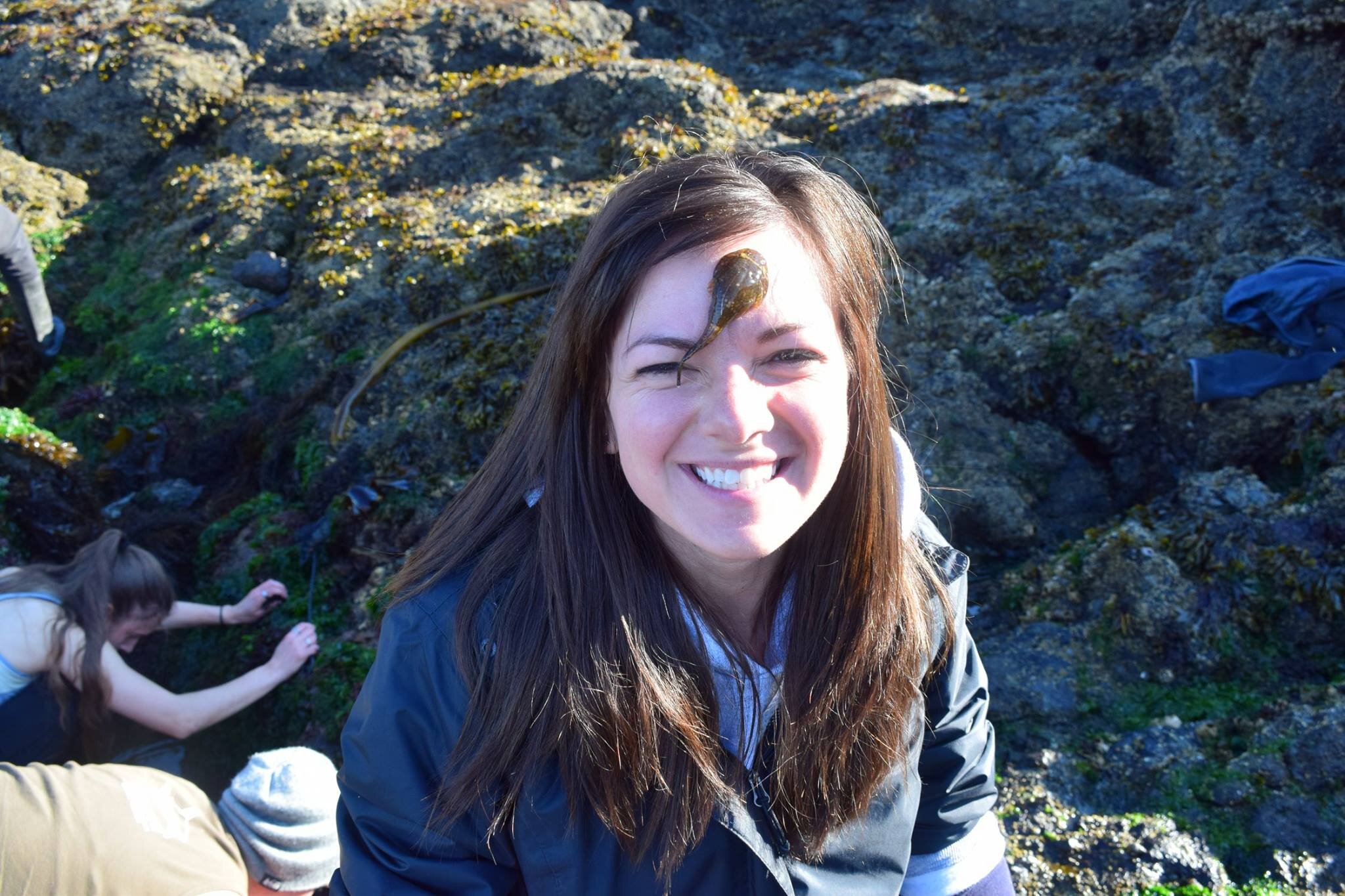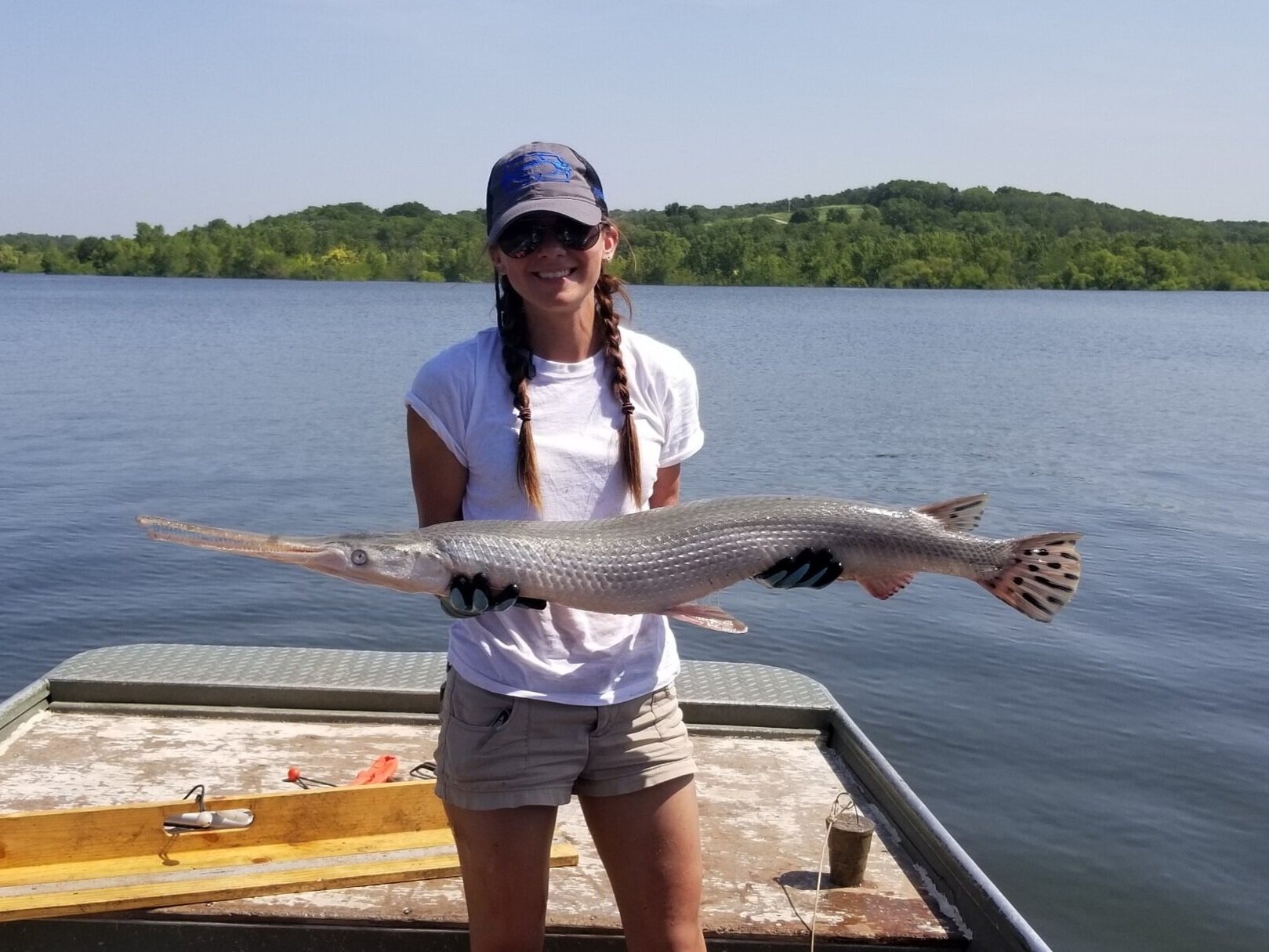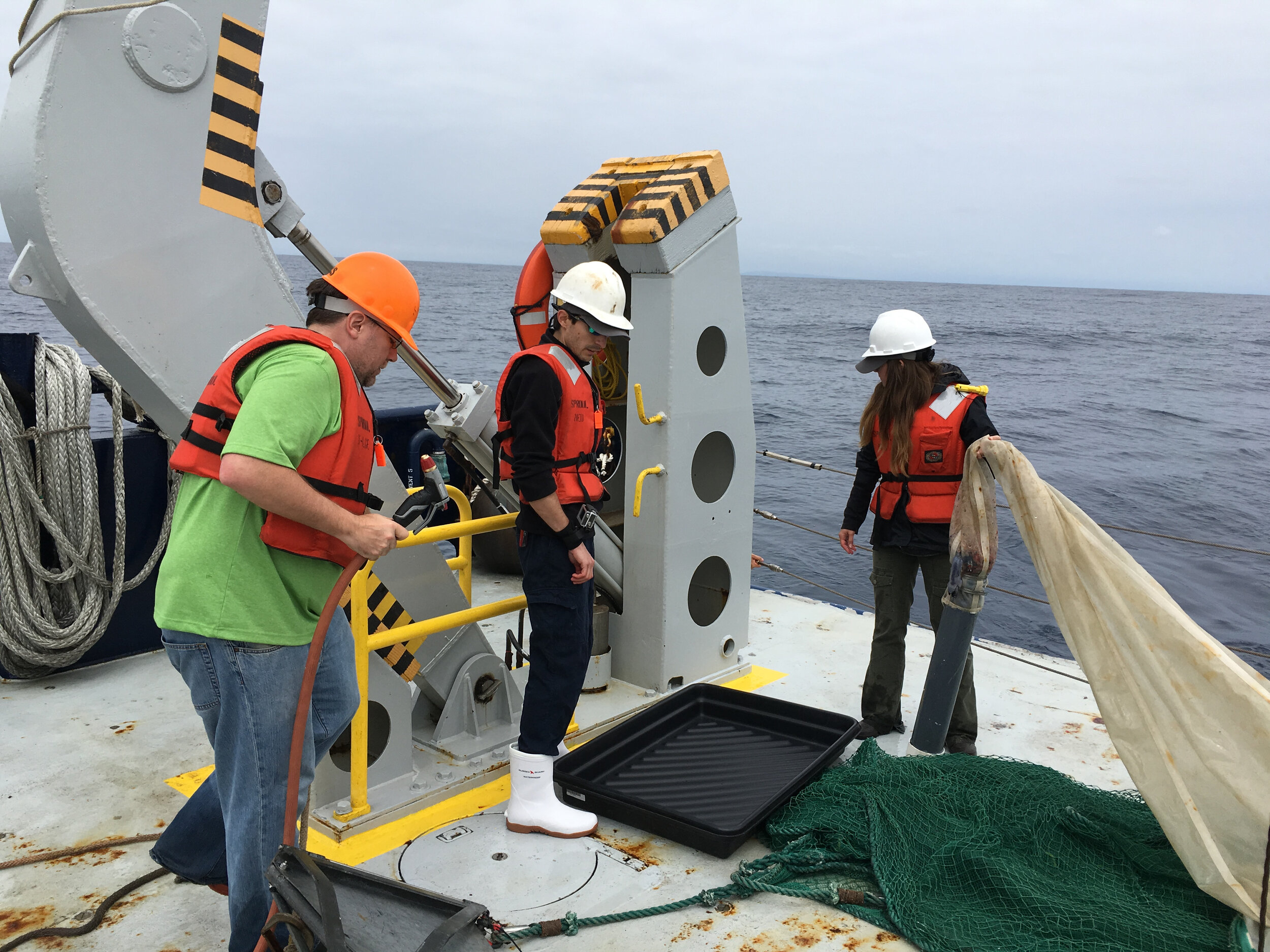Rene Martin: PhD student, Deep-sea Scientist, Artist
Tell us about yourself!
My name is Rene Martin, I was born and raised in Minnesota, and my favorite color is blue. I enjoy spending a large amount of time outside, and I like camping, rock climbing, hiking, fishing, and hunting. I also grew up playing and continue to play various video games. I started drawing when I was pretty young. Nothing major, just a normal kid drawing kid stuff. I enjoyed it enough that in high school and college I took a few art classes, which provided me with some knowledge on the subject and tools to learn. After that I stopped doing art for about a decade, and it wasn’t until graduate school that I really got back into it.
Can you share more about #SundayFishSketch and your current research?
The #SundayFishSketch was created for the sole purpose of motivating myself to draw every week. By this point in my scientific career, I knew I would be working on fishes for the rest of my life, so it made sense to make a weekly fish-related art hashtag. I did not expect the support and the large community that the #SundayFishSketch has built. Every weekend when our community comes together to draw fish, it is one of the highlights of my day, and I am overjoyed that so many people enjoy and partake in this similar interest.
My research focuses on answering evolutionary questions pertaining to the diversification of lanternfishes (Myctophidae) and other deep-sea fish lineages. Lanternfishes are an extremely abundant and bioluminescent midwater fish group. They eat large amounts of zooplankton and are prey for a variety of organisms, playing a major role in oceanic ecosystems. Lanternfishes, along with being abundant, are highly diverse for a pelagic fish lineage. My work includes creating phylogenetic hypotheses of genus-level relationships within Myctophidae using various types of data (e.g., ultraconserved elements, gene sequences, morphological characters), and using them as frameworks to investigate evolutionary questions related to lanternfish evolution and diversification.
How did you become interested in studying the ocean, and more specifically, deep-sea fishes?
Working for the fisheries in Minnesota.
I have always enjoyed watching documentaries about the deep-sea, and I grew up fishing and keeping aquarium fishes. I also interned and worked with state fisheries departments and helped with graduate research on fish behavior while I was an undergrad, so I had a background in fishes. It wasn’t until I started looking at graduate school programs that I fell on working with deep-sea fishes. Growing up in Minnesota, it was hard to fathom being able to work on something so remote and unique while living in the middle of the country. While I was finishing my bachelor’s degree, a newly hired professor at St. Cloud State University, the University I was finishing my bachelors at, was studying the evolution of deep-sea fishes and was looking for graduate students. I read through some of his work and was excited that I could potentially study something so interesting while still living in Minnesota, so I applied to his lab.
What do you wish everyone knew about the ocean?
How cool and interesting the Sargasso Sea is. It is located in the Atlantic Ocean and is created by currents surrounding it on all sides. Within this part of the Atlantic, there is a huge swathe of brown Sargassum seaweed that floats on the surface and is host to a huge community of organisms.
With your work (research and/or #SundayFishSketch), what do you hope to learn?
One of the reasons I started drawing fish was to get a better understanding of fish anatomy. By drawing an organism in detail, you realize how certain parts work and fit together. Drawing fish includes understanding key features on certain fish and also allows for better fish identification in the field. It has also led me to looking into fish groups I had never known about or encountered before. I am also able to illustrate my own figures for my scientific publications. I believe combining art with science has made me a more well-rounded ichthyologist.
What is some of the best advice you have received from mentors? What advice do you have for young scientists, artists, and explorers?
Learn to take constructive criticism and better both yourself and your work. There is a lot of information in the world, and as a student you are constantly learning new information, ideas, and techniques. Learn from your advisors and mentors and take what good knowledge they have to offer!
It is never too late to do the things that you love. Don’t let thoughts like ‘I’m too old’ or ‘it’s too late’ prevent you from pursuing your art or your career. I stopped working on art for an entire decade before picking it back up again, and now I can honestly say I have more successful than I ever thought I would be in both art and my career.
Rene holding a deep-sea fangtooth fish while trawling in California.
Please share a favorite memory from your research/field work!
In 2016 I had the pleasure of participating in a cruise off the Southern coast of California to trawl deep-sea fishes. It was one of the most amazing experiences and pulling up fresh and living deep-sea fishes for use in our research was beyond exciting.
Thank you for sharing with us, Rene! Keep inspiring people with your research and encouraging art with #SundayFishSketch. You can follow Rene on Instagram @Lampichthys and her personal website here. Check out her artwork pages here and here!
We always love to be introduced to new ocean explorers. If there’s someone you’d like to see an interview from, send us your ideas!






